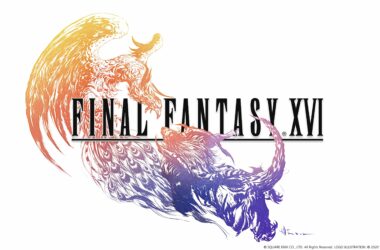I’ve been messing around with the recently released Diablo Immortal. It’s the latest game in the Diablo series, which popularized this Action RPG + loot genre of games that has largely displaced MMORPGs, by replacing monthly subscription fees with free-to-play mechanics that ensure a large userbase and plenty of microtransactions. Diablo Immortal is also unique in that it’s the first Diablo game available on mobile devices; though it was a much-derided decision when it was initially announced 3+ years ago, it actually feels pretty good to play on a phone—or better yet, an iPad1.
Much like what this post’s title suggests, the core gameplay of the Diablo series revolves around numbers going up. But, this evolutionary branch of gaming known as the Action RPG employs a gameplay loop around character building → player actions → loot → repeat—whereby the “action” part consists of players clicking/tapping on screen to attack and pressing hotkeys to fire off character abilities, and the “role-playing” part is finding cool-looking gear that also makes things explode better. Other genres take different approaches in creating this satisfying gameplay loop; one of my favorites is the idle game genre, which distills the loop down to its most fundamental, basic premise: to make the numbers go up.
But while the early Diablo PC games established the formula and are rightfully classics2, the series has not kept up with modern games on creating and maintaining that core loot loop. In particular, mobile games have iterated on gameplay systems that try to balance the fun of actually playing the game with the need to make money; as a result, the mechanics are pretty mature and standardized, and they’re well-known to gamers who like this genre of gaming. I had tried out Lost Ark—a hyped and highly-anticipated MMORPG launched in North America earlier this year—and thought it was fun, but overly complex and convoluted. On brief discussion though, one of my friends identified that it felt like a mobile game, just blown up on a PC monitor.
What they’re referring to is a set of tropes that are now standard for free-to-play games with RPG, numerical gameplay elements. I’m no expert in these types of games, but from what I can tell, they typically include aspects of:
- Multiple types of currency, some that are earned through gameplay and others that can only be purchased;
- Randomized “loot drops,” likened to slot machines that end up triggering the same instincts as gambling;
- Extensive inventory systems, which is further complicated by items which can be leveled up by the aforementioned currency systems;
- Pets or vehicles or other helpers, which also have their own levels and customization options;
- A core experience designed for most players to finish, and then extensive “endgame content” that forgoes the story but adds even more systems, monsters and items, deliberately designed to keep players playing for months or years.
The entire set of tropes is familiar enough to be recognizable from game to game, yet the individual details are often so complicated that games resort to elaborate tutorials to introduce them, layers overlaid on top of another layers. Read through one of many reviews of Diablo Immortal, and you get a sense of how there’s armor and gems and legendary gems and special dungeons and modifiers for those dungeons and crests and special crests—all intertwined and built to entice players to eventually shell out some money to get slightly ahead.
In fact, it’s so complicated that the game has to build dedicated UI/UX to streamline everything that’s going on. It continuously notifies the player of all the little achievements they’ve reached through their play—whether it’s the First Kill of the Day, or some limited-time offer for buying a bundle of in-game currency, or the Season Pass, or killing x number of enemies, or any one of a dozen things that attempt to instill a combination of accomplishment and FOMO. There are so many reward types and currencies, so many triggers for conditions and events, that it all sort of blurs together as throwaway interfaces to power through.
How much of this complexity is in service of the need to monetize a game that’s free to play, versus just building interesting systems for player engagement? Diablo 4 may well be the natural experiment to find out.
And on launch, they also released a ported version of the game on PC.↩
Diablo 2 was recently remastered for a new generation of gamers.↩




